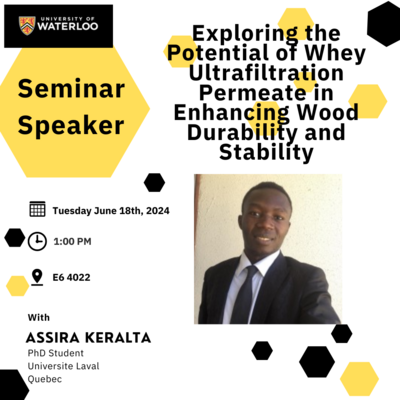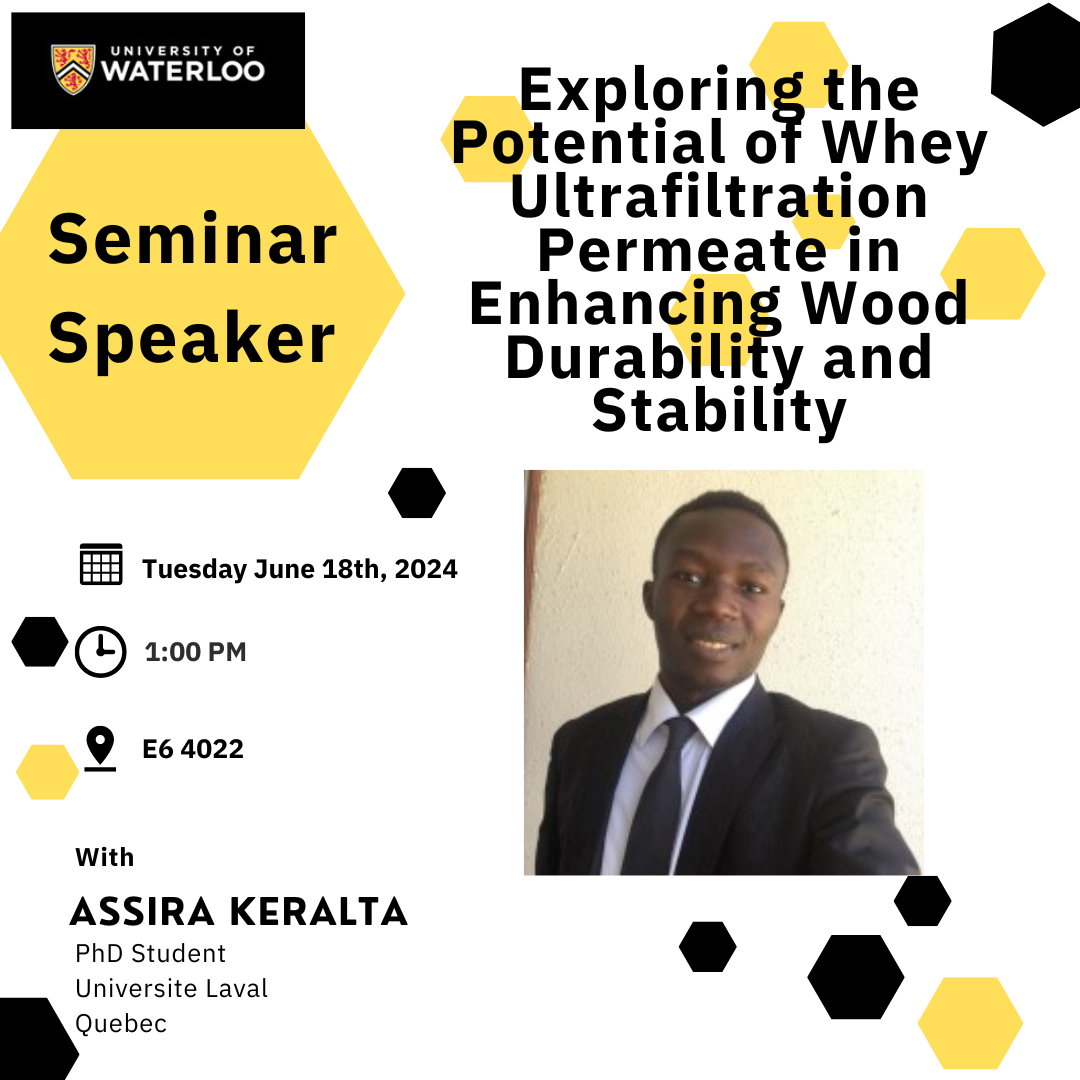Exploring the potential of whey ultrafiltration permeate in enhancing wood durability and stability
The Chemical Engineering Department is hosting a special graduate lecture on Exploring the potential of whey ultrafiltration permeate in enhancing wood durability & stability
Abstract:
Wood is a hygroscopic and hygro-responsive material, meaning it can absorb and desorb moisture based on its surrounding environment. This absorption/desorption phenomenon is accompanied by dimensional changes.
Additionally, the presence of moisture in wood not only provides optimal conditions for microorganism growth but also facilitates the diffusion of fungal enzymes that initiate wood decay. Reducing wood moisture uptake enhances both dimensional stability and resistance to microorganisms. Various technologies have been developed with this goal in mind, including wood polyesterification. This process involves impregnating wood with polyols and polyfunctional acids, followed by an in-situ reaction to occupy the primary sites of moisture absorption. Whey ultrafiltration (UF) permeate, a byproduct of the cheese industry, contains up to 88% lactose (based on dry mass).
Lactose, a disaccharide with eight hydroxyl groups, acts as a polyol. This project investigates the potential of using lactose from whey UF permeate as a polyol to substitute other polyols in wood modification.
Our findings demonstrate that lactose from whey UF permeate can react with citric, malic, and succinic acids when heated to 160 °C. While undergoing esterification, caramelization also occurs due to heat and acidic conditions, and Maillard reaction takes place as a secondary reaction due to the presence of non-protein nitrogen in the whey UF permeate. Polyesterification of trembling aspen wood using a combination of whey UF permeate, and malic acid significantly reduces its moisture content compared to untreated trembling aspen wood. This treatment also enhances its dimensional stability by up to 60% and significantly alters its thermal stability. This ongoing project highlights the potential of using whey UF permeate in wood modification, thereby adding value to a byproduct whose production is steadily increasing in North America, posing a significant management challenge for the cheese industry.

